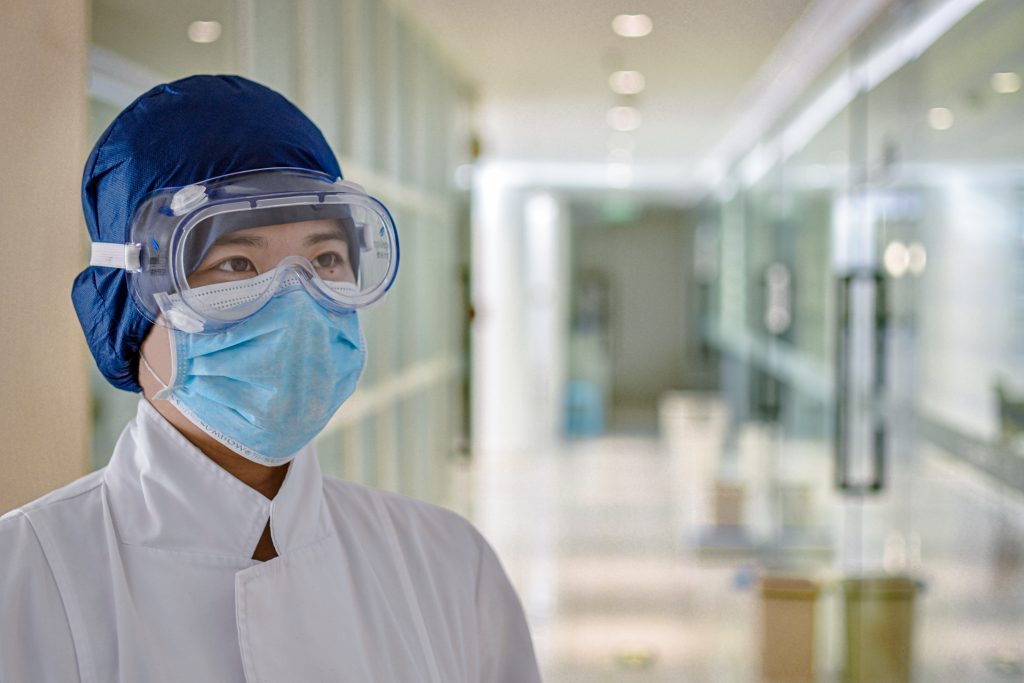Ophthalmologists want guidance

Cheryl Guttman Krader
Published: Friday, May 1, 2020
 An online survey of ophthalmologists in India provided a snapshot of current practices within the first week after the government ordered a total lockdown in response to the COVID-19 pandemic. As reported in a recently published article, one of the most striking findings of the survey’s results was the lack of clarity among the respondents about how to proceed with delivery of care after the restrictions related to COVID-19 are lifted.
The results of the survey were reported by Nair et al. in the May issue of the online Indian Journal of Ophthalmology.
The survey was sent out by email five days after the Indian government declared a nationwide lockdown, including orders that allowed only emergency healthcare services. The survey contained nine questions designed to assess the effect of the lockdown on ophthalmic practice and to gather ophthalmologists’ perceptions about risks, screening protocols and prevention strategies related to clinical examination and surgeries after practices reopened.
A total of 1,260 completed surveys were received during the allowed 48-hour response period. The majority of the respondents were private practitioners (62%), and the next most highly represented group were clinicians affiliated with ophthalmic institutes (15%).
When asked about their anticipated plan for performing elective surgeries once the restrictions were eased, the majority of respondents (58%) indicated they were not sure when they when would start. Thirty per cent of the respondents said they would wait one week before starting elective surgeries and 12% said they would resume the operations immediately.
Approximately 60% of the respondents believed that ophthalmologists face a higher risk of contracting COVID-19 when examining patients compared with other specialists. Asked about their preferred strategies for preventing infection contraction and spread once surgeries are resumed, 63% of respondents said they were unsure and were awaiting guidelines, 17% said their preference would be to use additional personal protective equipment (PPE) for all cases, 10% wanted to perform COVID-19 as part of the preoperative screening for all elective surgeries and 11% said they would include both COVID-19 screening and use of PPE.
Commenting on the latter data, the authors stated: “Unless there is unequivocal evidence that proves the utility of these additional measures in all patients, they would add to the cost of patient care.”
Recognising the general lack of clarity about when and how to resume elective surgeries, Nair et al. also called on ophthalmic societies to develop clear guidelines on these issues that are based on expert opinion and review of the available literature.
An online survey of ophthalmologists in India provided a snapshot of current practices within the first week after the government ordered a total lockdown in response to the COVID-19 pandemic. As reported in a recently published article, one of the most striking findings of the survey’s results was the lack of clarity among the respondents about how to proceed with delivery of care after the restrictions related to COVID-19 are lifted.
The results of the survey were reported by Nair et al. in the May issue of the online Indian Journal of Ophthalmology.
The survey was sent out by email five days after the Indian government declared a nationwide lockdown, including orders that allowed only emergency healthcare services. The survey contained nine questions designed to assess the effect of the lockdown on ophthalmic practice and to gather ophthalmologists’ perceptions about risks, screening protocols and prevention strategies related to clinical examination and surgeries after practices reopened.
A total of 1,260 completed surveys were received during the allowed 48-hour response period. The majority of the respondents were private practitioners (62%), and the next most highly represented group were clinicians affiliated with ophthalmic institutes (15%).
When asked about their anticipated plan for performing elective surgeries once the restrictions were eased, the majority of respondents (58%) indicated they were not sure when they when would start. Thirty per cent of the respondents said they would wait one week before starting elective surgeries and 12% said they would resume the operations immediately.
Approximately 60% of the respondents believed that ophthalmologists face a higher risk of contracting COVID-19 when examining patients compared with other specialists. Asked about their preferred strategies for preventing infection contraction and spread once surgeries are resumed, 63% of respondents said they were unsure and were awaiting guidelines, 17% said their preference would be to use additional personal protective equipment (PPE) for all cases, 10% wanted to perform COVID-19 as part of the preoperative screening for all elective surgeries and 11% said they would include both COVID-19 screening and use of PPE.
Commenting on the latter data, the authors stated: “Unless there is unequivocal evidence that proves the utility of these additional measures in all patients, they would add to the cost of patient care.”
Recognising the general lack of clarity about when and how to resume elective surgeries, Nair et al. also called on ophthalmic societies to develop clear guidelines on these issues that are based on expert opinion and review of the available literature.